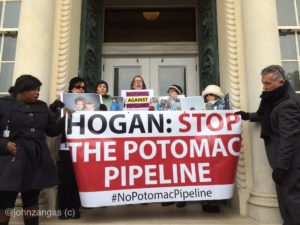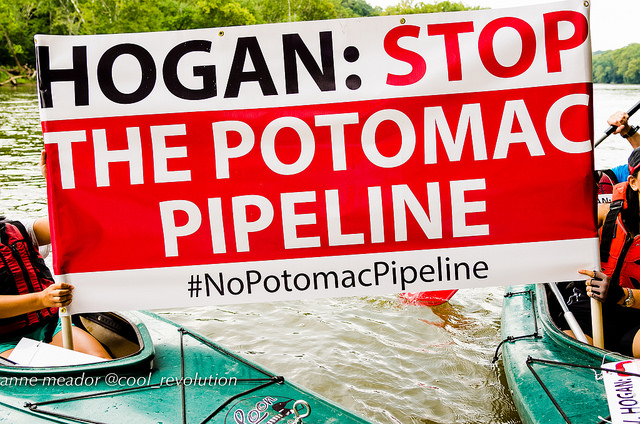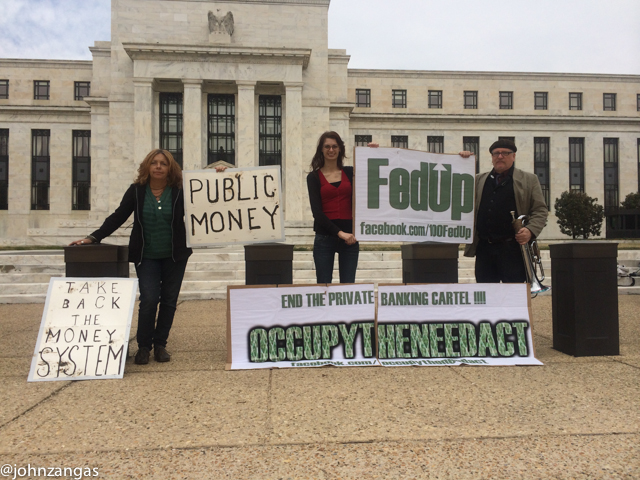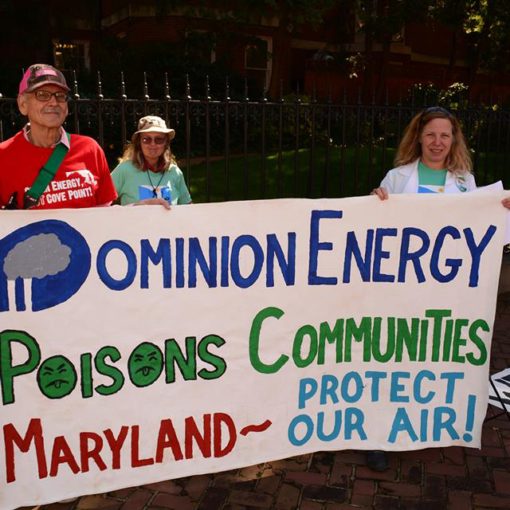
The Maryland Department of the Environment (MDE) granted Columbia Gas Transmission, LLC a wetlands and waterways permit for the Eastern Panhandle Expansion, also known as the Potomac Pipeline. Environmental organizations have already come out with statements expressing disappointment and calling the permit “a serious mistake.”
The permit for the 3.3-mile gas pipeline, which would originate in Pennsylvania and pass under the Potomac River, includes “customized conditions specific to the Project and its location,” which MDE says will “establish reasonable precautions and safeguards intended to protect public health and the environment.” MDE asks the Federal Energy Regulatory Commission (FERC) to include similar protections in its final approval, called a Certificate of Public Convenience and Necessity (CPCN). TransCanada Corporation acquired Columbia Gas in 2016.
Maryland Secretary of the Environment Ben Grumbles signaled last month that MDE would take this tact when he asked the U.S. Army Corps of Engineers to hold off on its permit decision until the Maryland agency had a chance to formulate “special conditions.” Grumbles appears to have taken this action because the public “raised some concerns” about the pipeline.
Numerous demonstrations expressing oppositions against the pipeline have occurred at MDE hearings and in Annapolis targeting Gov. Larry Hogan. Only two days ago, five women were arrested protesting the pipeline at the Maryland State House.
MDE chose language appearing to defend itself against accusations of a weak review of the application within a too narrow scope. MDE has completed “a robust, year-long review,” Grumbles tells FERC, and “undertook a science-based review” which considered “all relevant criteria,” including water protection and public safety and welfare.
“While we are still reviewing the permit, we believe that no conditions under the state’s Wetlands and Waterways permit are sufficient to protect the state’s waters, given the sensitive geology and the potential impacts to the treasured Potomac River,” said Anne Havermann, General Counsel at the Chesapeake Climate Action Network. “This state-level permit is limited in what it covers and MDE had to issue it upon a showing that the proposed project would ‘minimize adverse impacts.’” MDE should have pursued the more rigorous permitting process under section 401 of the Clean Water Act, she adds.
Many of the issues raised by the public and environmental groups have centered on the risks of TransCanada’s plan to bore underneath the Potomac River using a technology called hydraulic directional drilling (HDD), especially in a region of karst geology.
Laying pipeline using HDD has resulted in serious consequences to wetlands in Ohio and wells, streams, municipal water sources and property all over Pennsylvania. Blowouts of drilling fluid have contaminated wells and polluted wetlands and waterways with bentonite clay and proprietary lubricants.
Karst geology is fragile and poses risks when either drilling or trenching. The Pennsylvania Public Utility Commission shut down a gas fluids pipeline last week when huge sinkholes formed during construction of a parallel pipeline in karst.
Some of the special conditions imposed on the Potomac Pipeline permit address HDD. All drilling fluid additives must be approved by MDE. TransCanada is required to notified downstream public water facilities in the event of a blowout of drilling fluid and must conduct water quality monitoring afterward. MDE makes it clear that no well should be damaged or degraded during construction, but if any are, TransCanada is responsible for repairing and restoring it and for providing a supply of drinking water in the meantime. The special conditions also list specific procedures for preventing the formation of sinkholes.
The other main complaint made by critics of the pipeline is that MDE has only considered one piece of a larger project and not the cumulative impacts in conjunction with Mountaineer Gas Pipeline in West Virginia.
“Although the special conditions do provide better reporting measures for Columbia Gas, again MDE has failed to recognize that the same threats exist with the Mountaineer Gas portion of the pipeline,” said Upper Potomac Riverkeeper Brent Walls. “These special conditions would only apply to half of the entire pipeline project.”
The Maryland permit was a requirement for the U.S. Army Corps of Engineers approval. It could ultimately deny the permit based on other water quality impacts. All federal agencies required to weigh in on FERC’s Final Environmental Assessment must do so by April 26.





